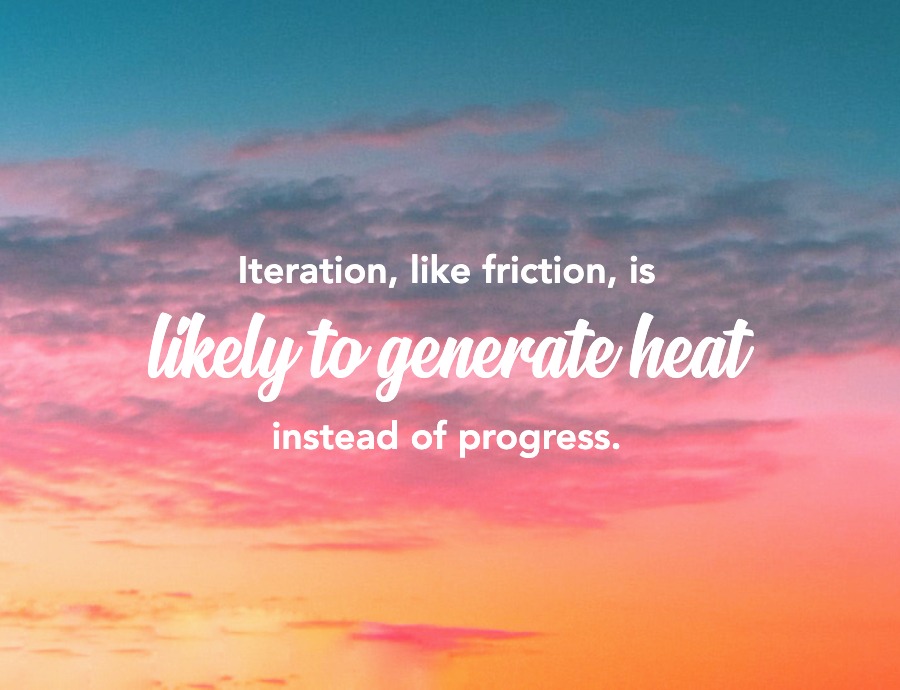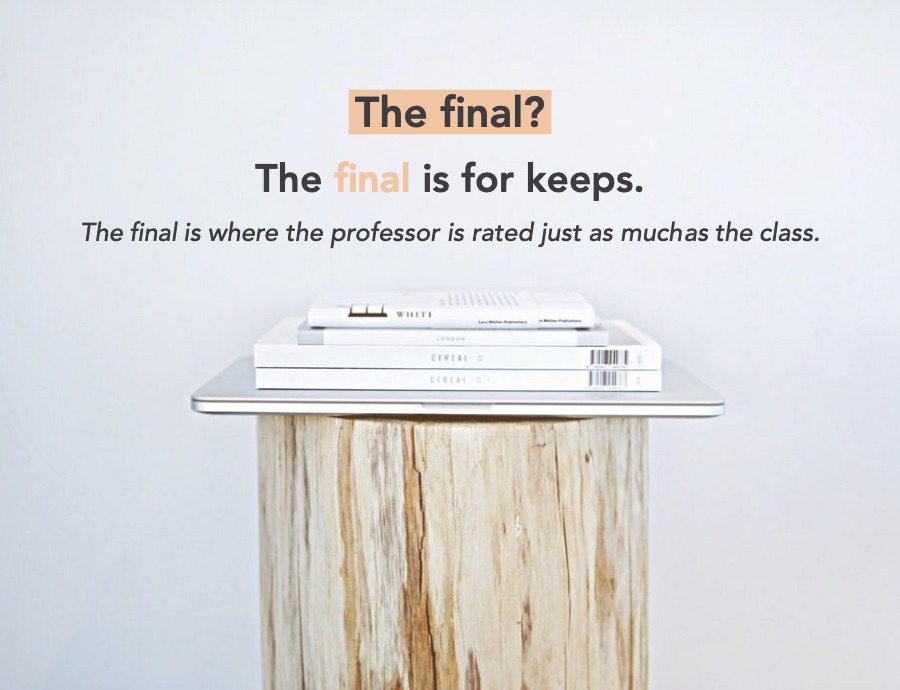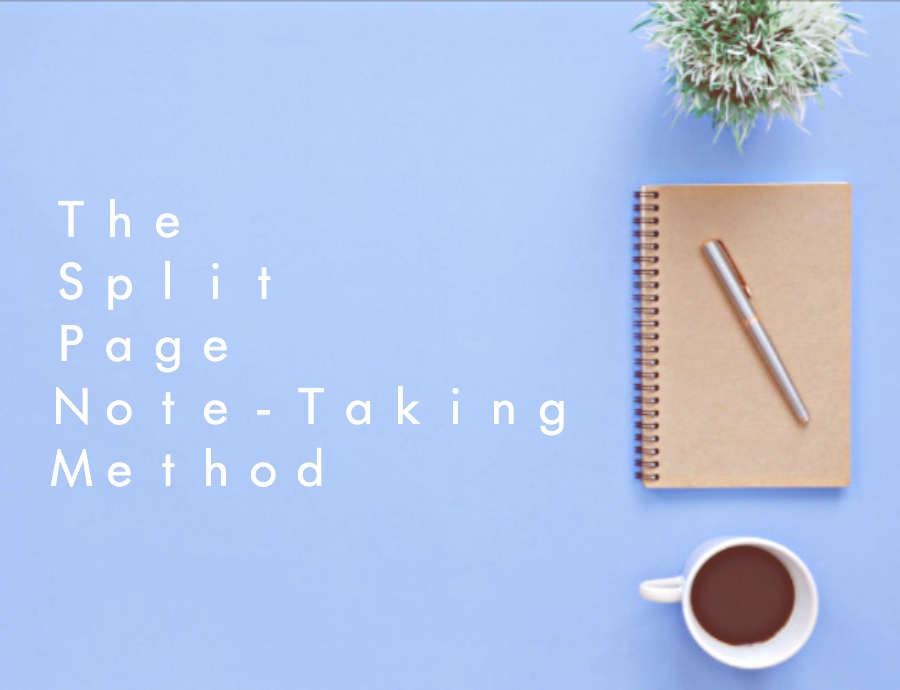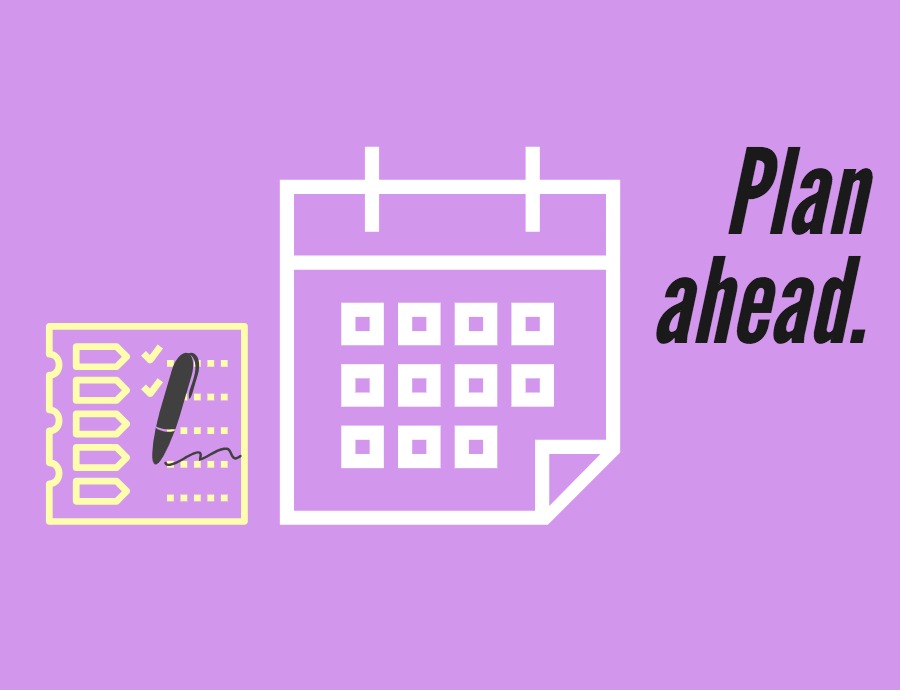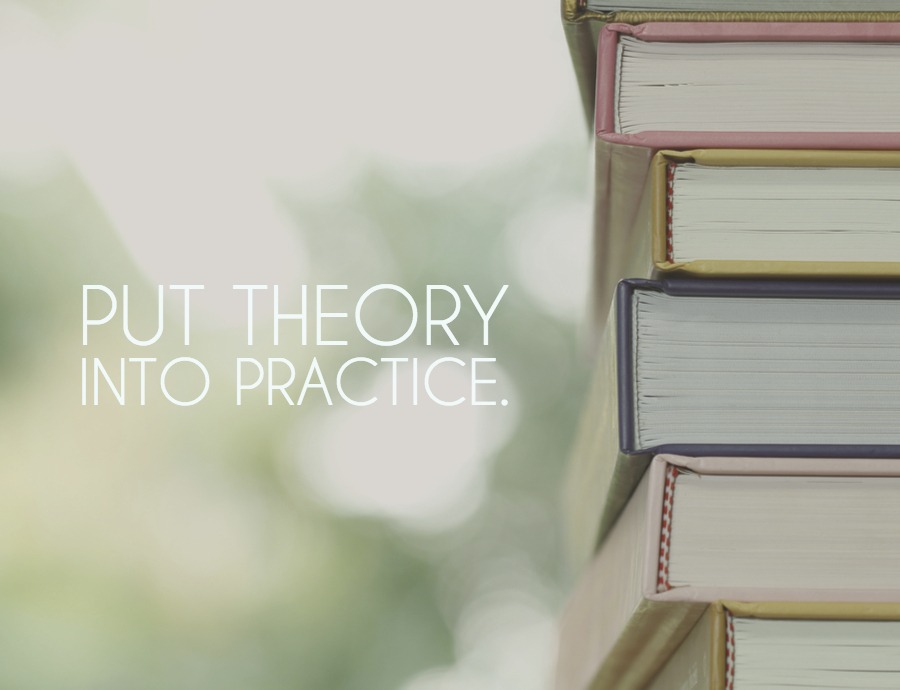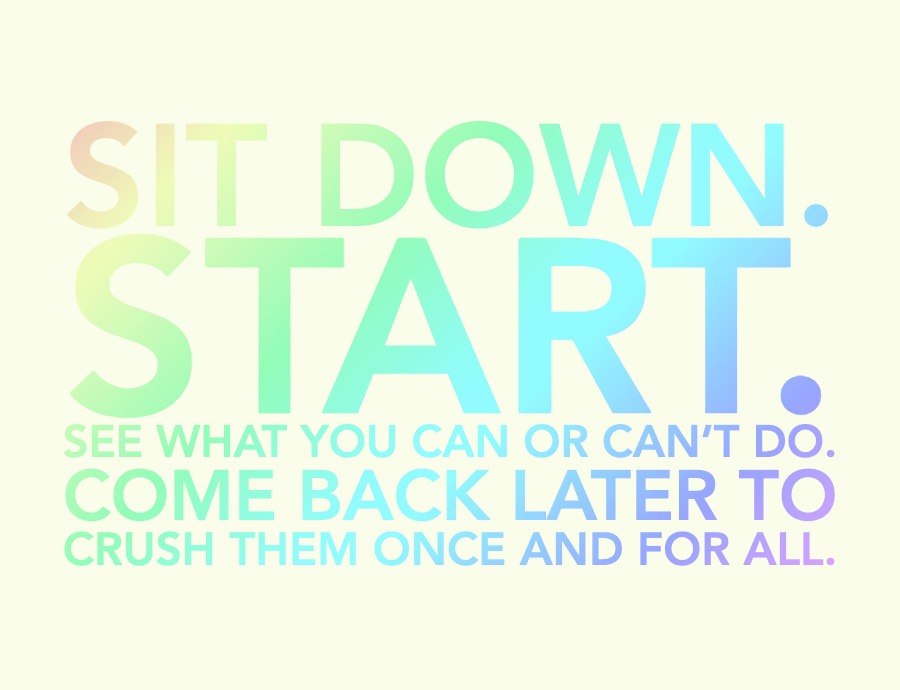Your brain isn’t a photocopier. You can tell because it isn’t a meter cubed of buzzing grey plastic and it very rarely runs out of ink. (Though it does sometimes make an extended scream when faced with a page of complicated notes). But so many people confuse their own neurons are Xeroxes, just sitting and staaaaaring at some notes in the hopes that they’ll magically copy into the brain.
They won’t!
Sitting and staring at something until it cracks is for interrogations, not examinations. Trying to learning something in one big session is like trying to knock down an oak tree in one powerful chop: a few people can do it, and we’ll admit they’re quite impressive, but the rest of us need to take a few more swings at it.
Iteration is easier and works better. You really can have both! The first benefit is that you know you’ll be coming back to this material, so the awful pressure to understand it immediately evaporates. Instead you get to enjoy reading through it, playing with a couple of problems, doodling sketches, rearranging equations, composing chemical rhymes, whatever works best to bounce the ideas around your brain. Then when you come back for a second attempt there’s a solid foundation to build on. Keep repeating and soon you’ll have an entire structure of knowledge, a fortress of facts from which to dominate exam season (as opposed the people who crammed the night before, desperately dashing from question to question trying to find something they know how to do).
Iterating also works wonderfully with lectures. Instead of waiting until the term is finished — which means waiting until you’ve got less time, never a good idea! — you’re building bridges between bits between lessons. Now your new notes integrate with what you’ve already studied. Instead of becoming a bigger mountain of notes you need to know later.
Iteration has all kinds of advantages. That’s why I’m iterating the word so much in this post! One of the most powerful is long-term: if you’re used to studying more often instead of dreading a single Big Huge Night Of Work, you’re going to enjoy studying a lot more. It’ll be a habit instead of a chore, an upgrade instead of an irritation. You came to university to improve yourself. Becoming better at working and learning, instead of delaying and scraping buy, is the most important lesson you can learn. And one you should certainly iterate over and over again!
They won’t!
Sitting and staring at something until it cracks is for interrogations, not examinations.
Sitting and staring at something until it cracks is for interrogations, not examinations. Trying to learning something in one big session is like trying to knock down an oak tree in one powerful chop: a few people can do it, and we’ll admit they’re quite impressive, but the rest of us need to take a few more swings at it.
Iteration is easier and works better. You really can have both! The first benefit is that you know you’ll be coming back to this material, so the awful pressure to understand it immediately evaporates. Instead you get to enjoy reading through it, playing with a couple of problems, doodling sketches, rearranging equations, composing chemical rhymes, whatever works best to bounce the ideas around your brain. Then when you come back for a second attempt there’s a solid foundation to build on. Keep repeating and soon you’ll have an entire structure of knowledge, a fortress of facts from which to dominate exam season (as opposed the people who crammed the night before, desperately dashing from question to question trying to find something they know how to do).
Iterating also works wonderfully with lectures. Instead of waiting until the term is finished — which means waiting until you’ve got less time, never a good idea! — you’re building bridges between bits between lessons. Now your new notes integrate with what you’ve already studied. Instead of becoming a bigger mountain of notes you need to know later.
Iteration has all kinds of advantages. That’s why I’m iterating the word so much in this post! One of the most powerful is long-term: if you’re used to studying more often instead of dreading a single Big Huge Night Of Work, you’re going to enjoy studying a lot more. It’ll be a habit instead of a chore, an upgrade instead of an irritation. You came to university to improve yourself. Becoming better at working and learning, instead of delaying and scraping buy, is the most important lesson you can learn. And one you should certainly iterate over and over again!

